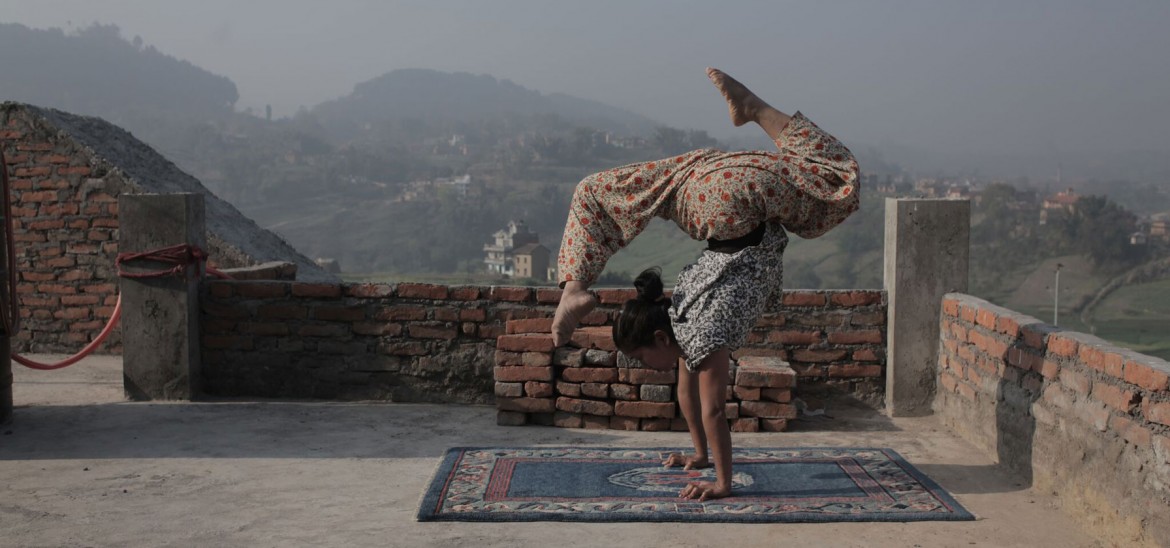Into Film Clubs
Find out everything you need to know about starting an Into Film Club.



As the ongoing enormous success of The Greatest Showman has demonstrated, audiences continue to be in thrall to stories about the magic and escapism of the circus. This form of family entertainment has been around for many hundreds of years and cinema has a rich history of celebrating its practice, from Freaks, Dumbo and The Greatest Show on Earth, through to more recent films such as Circo, an intimate documentary about a family's long-term involvement with a travelling Mexican circus, Tim Burton's Big Fish and, of course, the Hugh Jackman-starring Greatest Showman phenomenon.
However, Even When I Fall reveals some of the disturbing, harrowing realities behind the curtain of circuses in some parts of the world, telling the story of a group of children and young women trafficked from their homes in Nepal in order to participate in one of India's many circuses.
Human trafficking is the world's fastest growing criminal activity, estimated to affect over 20 million people a year, worldwide. More than 10,000 women and children are believed to be trafficked from Nepal to India annually, with many ending up performing in the circus. Some are rescued, and able to return home, but the majority will still face local stigmatization.
This already disturbing situation became exacerbated following the 2015 Nepal earthquake, which had a devastating impact on the resources and infrastructure of a developing society beginning to find its feet. Local NGOs have discovered that those in vulnerable positions have become even more isolated due to this cataclysmic event, resulting in a rise in trafficking.
Saraswoti was only eight years old when she was sold to the circus. At fourteen, she found herself married to its owner, and soon after that gave birth to twins, subsequently having another child. She did not see her family for fourteen years, until a Nepali NGO successfully rescued her and brought her back home.
Sheetal came to the circus aged five, and was there for eight years. She claims to remember her mother, but in reality recalls next to nothing about her early childhood. She does not know her original caste, or where she came from, and is even unsure of her actual age.
For both Saraswoti and Sheetal, adjusting to life after the circus was challenging. There is anger towards their families for allowing them to be sold, rather than sending them to school, resulting in illiteracy. Both also feel a certain emotional attachment, even nostalgia for life in the circus, where life was in some senses more straightforward, particularly given the cultural stigma that many survivors of trafficking face in Nepal.
Rather than focusing entirely on the victimhood of these poverty stricken Nepalis, for Even When I Fall co-directors Sky Neal and Kate McLarnon decided to instead concentrate on telling a story of resilience and transformation. Remarkably, the two young women found the strength and courage to use their experiences to create something positive. Life in the circus left them with a number of performing skills, that they were keen to utilize. Together with eleven other survivors, Sheetal and Saraswoti formed Circus Kathmandu, Nepal's first and only circus.
Looking to introduce local audiences to a brand new art-form, and provide a showcase for their many skills, the circus also sought to challenge the stigma facing trafficked women in Nepalese society. Initially, developing these performances was nerve-wracking. But as their confidence grows, and word-of-mouth begins to spread around the country, the circus - which is deliberately non-traditional and can be taken anywhere with ease - begins to increase in popularity. The film follows their journey around the country, as they use the performing arts to help educate children and families about the dangers of trafficking, providing audiences with the education that was denied to them. Circus Kathmandu goes on to develop international fame, culminating in a transformative experience performing to an enormous crowd at the Glastonbury Festival.
The filmmakers worked with the performers over six years - some from the moment of their rescue. To authentically capture these experiences, it was essential to first win the trust of the participants, and ensure the film was genuinely collaborative, even though most of the subjects would be completely unfamiliar with the practices of documentary filmmaking. Many would also struggle to articulate their feelings, despite a clear desire to express them. The film, in part, chronicles that journey, particularly in moving sequences where Sheetal's mother laments that she believes her children are suffering because of her own naivety. To help facilitate this communication, the filmmakers worked closely with the participant's own creative outlook - the circus itself - as the survivors discovered how art and performance could be used to advocate for social change.
Even When I Fall tells a deeply upsetting story. However, it also celebrates the ability of storytelling and magic to transform and educate. The work of Circus Kathmandu goes on, with increasing challenges. The impact of the earthquake was devastating for them. But they continue to work tirelessly to use their skills to inform more young people about the dangers of trafficking and fight for a better future. The documentary is a sobering, important and often surprisingly uplifting film that deserves to find an audience and have Saraswoti and Sheetal's message heard.
Viewing 4 of 4 related items.

Find out more about our streaming service, designed specifically for UK schools.